Containerboard (also known as corrugated base paper) is a versatile, semi-finished paper product primarily used for the production of corrugated cardboard. It is fully recyclable and renewable, making it a prime example of circularity in action.
Our industry
Though it may go unnoticed, the containerboard industry plays an essential role in our daily life, supplying sustainable base materials for countless industries and applications.
Committed to innovation, it continues to deliver low-carbon solutions while constantly improving the performance of its products and processes.

What is
containerboard?
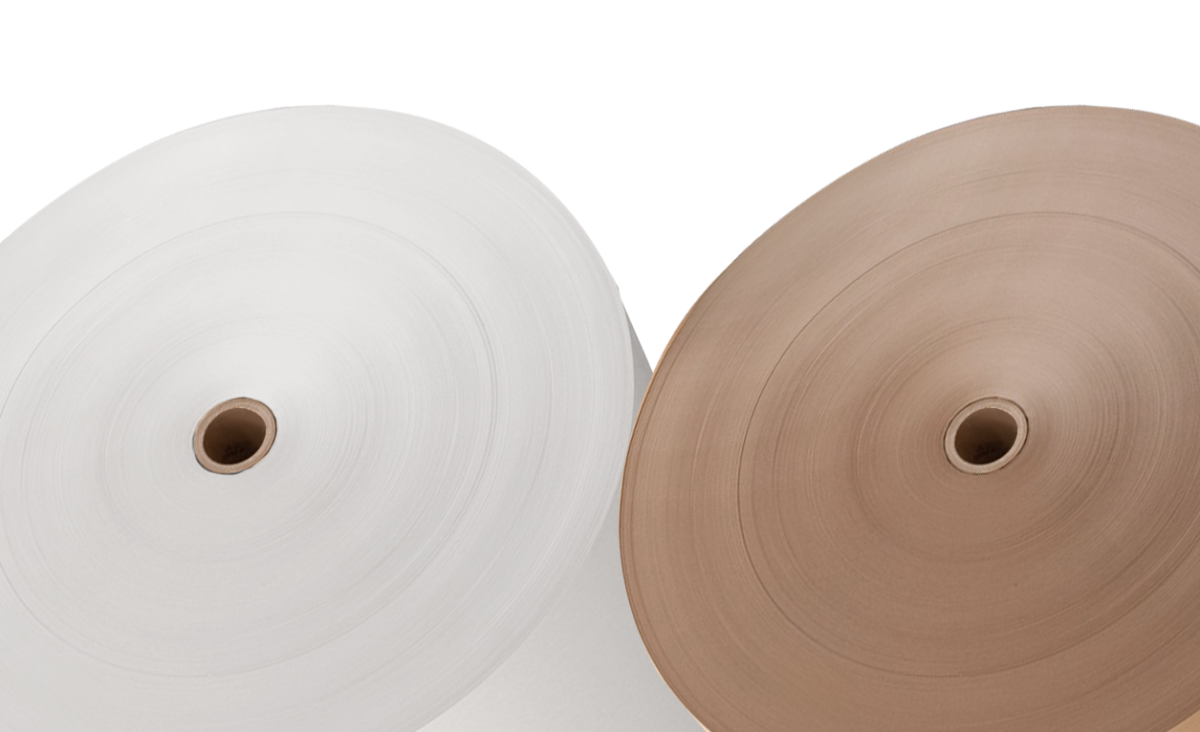
Containerboard is made from both primary and recycled fibres and comes in two main grades: liners (in brown and white) and flutings. Both are used to produce corrugated cardboard, a strong, lightweight, and fully recyclable material that is pre-dominantly utilised to pack, ship, protect and promote goods across various sectors such as e-commerce, food & beverage, logistics, retail, and industrial.
As it is one of the most recycled materials in the world, it is also a leading example of circularity in action, once used, it is collected, reprocessed, and turned back into new containerboard, reducing waste and conserving natural resources.
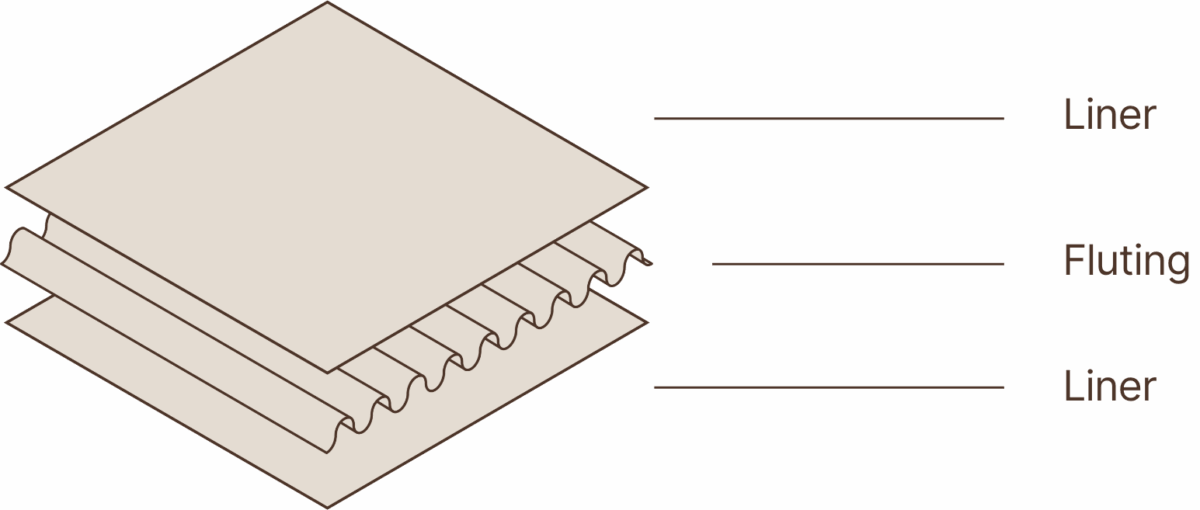
An overview of the range of containerboard grades covered by Containerboard Europe can be downloaded here.
Containerboard
in everyday life
Containerboard is everywhere, protecting and promoting products and supporting sustainable packaging solutions. Beyond its strength and efficient processability, it offers excellent printing properties, making it ideal for impactful promotional or marketing purposes. With sustainability in focus, its demand continues to grow across various new sectors as well.
-
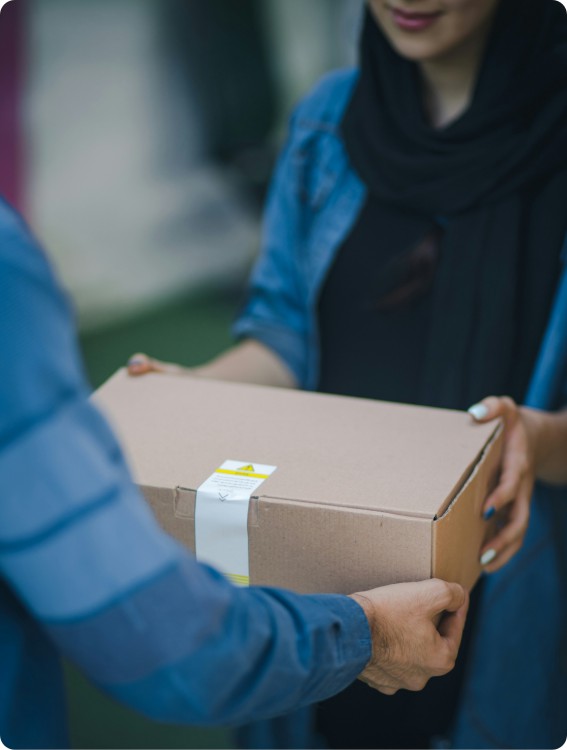
Packaging
Thanks to its recyclability and versatility, containerboard is the preferred choice for sustainable packaging.
-
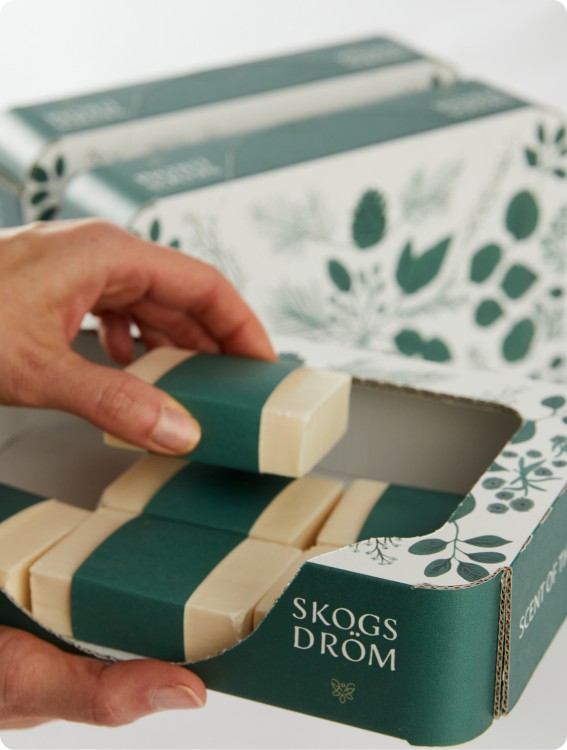
Marketing
Containerboard is ideal for eye-catching displays and in-store promotions that leave a lasting impression.
-

New sectors
Containerboard is more and more finding its way into innovative applications beyond packaging.
Key benefits
-
Fully recyclable
& renewableSupports a circular economy with a high recovery rate.
-
Light
but durableStrengthens packaging while minimising material use.
-
Locally produced,
globally essentialWith 180 mills across Europe, containerboard mills support local economies while enabling global trade and commerce.
-
Versatile &
easy to processUsed across various industries for a wide range of packaging and non-packaging applications.
The European
containerboard industry
Containerboard Europe is the industry association for containerboard producers, bringing together and representing the interests of more than 120 companies from 22 countries.
A unique circular system:
The containerboard industry operates within a unique and unrivalled circular system, setting the standard for high recycling rates and exceptional sustainability. This system ensures that resources are continuously recovered, treated, and reused. Making it a true example of circularity in action.

-
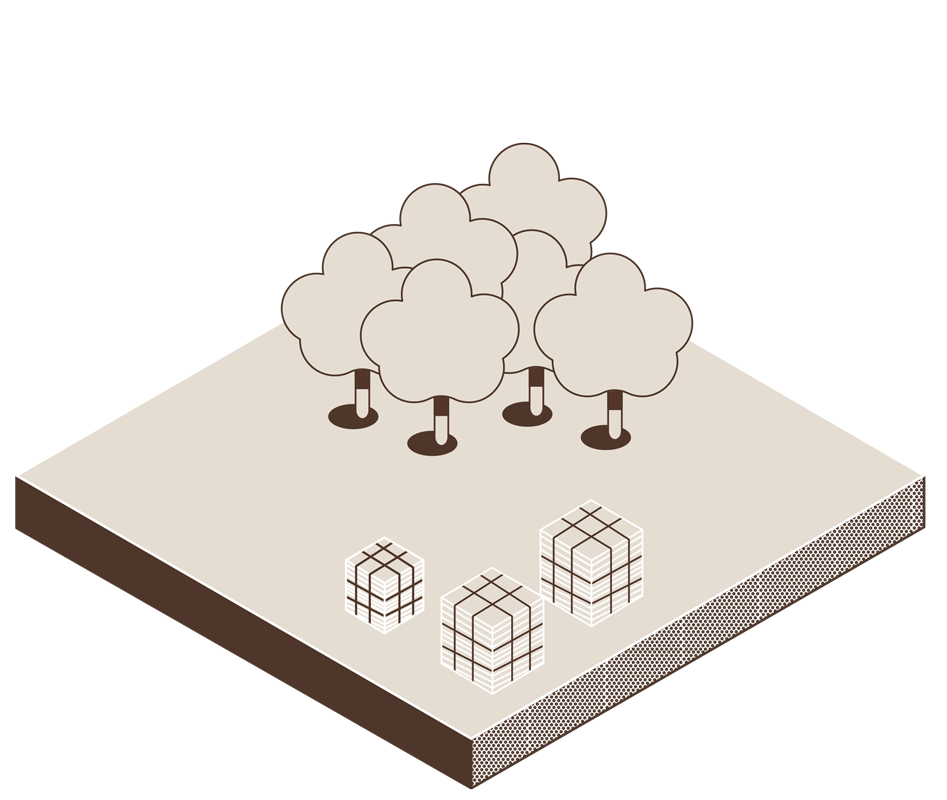 1
1Fibres
Both sustainably sourced primary and recycled fibres play complementary and equally essential roles in the containerboard production process. Their balanced use is key to maintaining circularity while ensuring superior product performance, delivering strength, durability, printability, and recyclability.
-
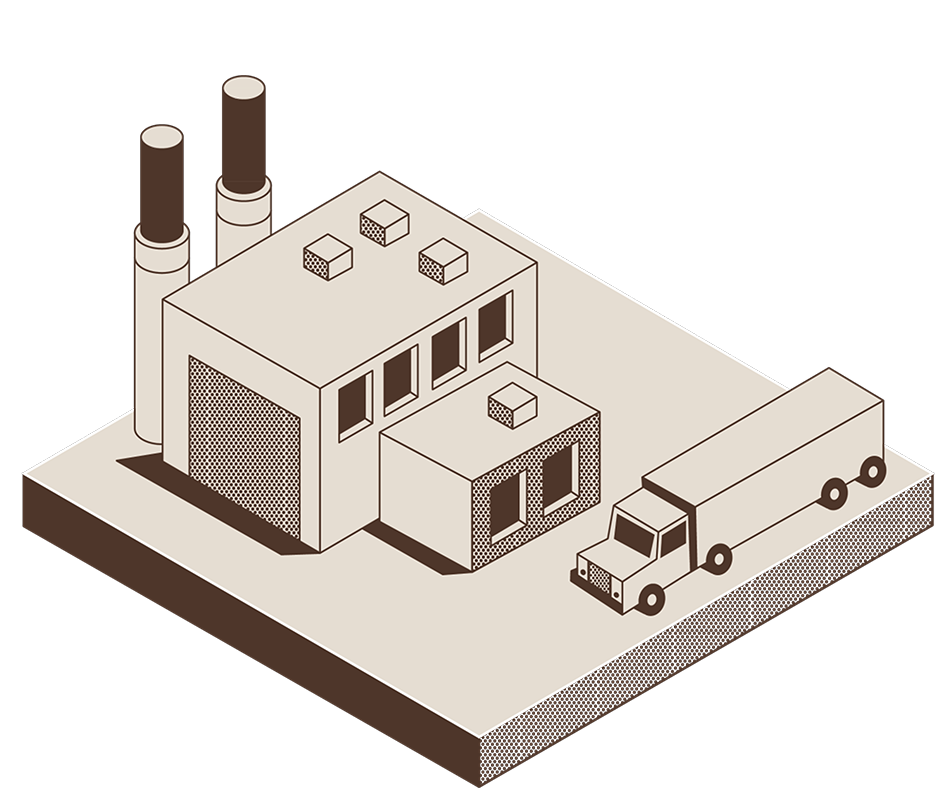 2
2Containerboard Mills
Containerboard mills transform fibres into a wide range of high-quality containerboard grades. Beyond fibres, essential resources like water and chemicals are continuously treated and reused, reinforcing a highly efficient production model that minimizes waste and enhances sustainability.
-
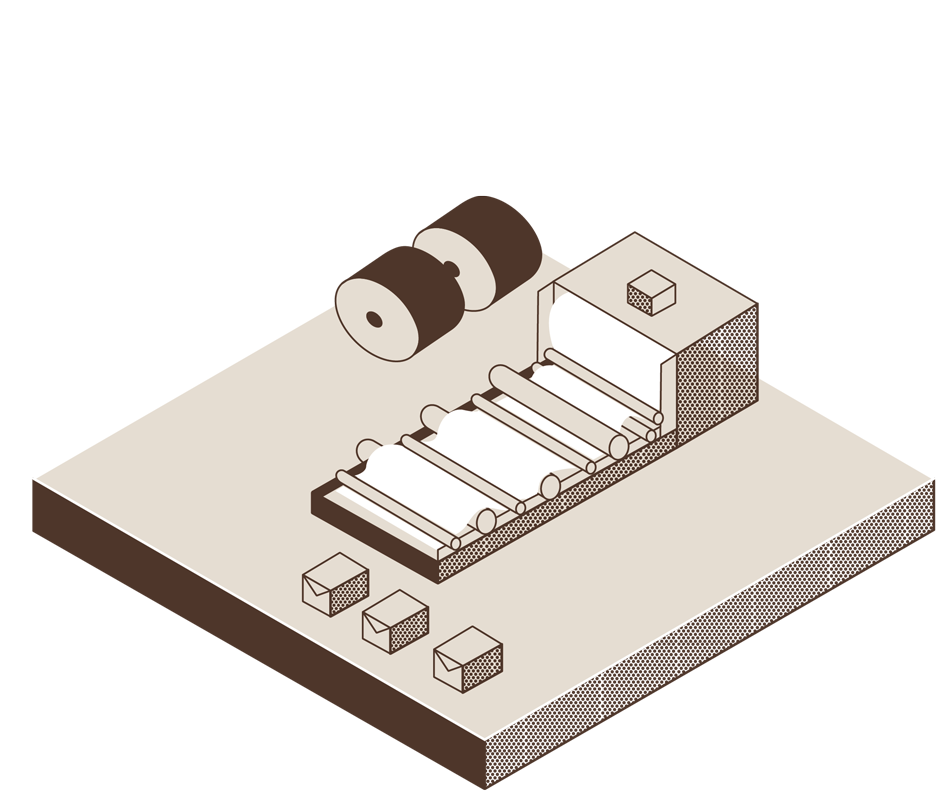 3
3Converters
Converters use containerboard to produce corrugated cardboard primarily for packaging and promotion purposes. Containerboard however also serves non-packaging purposes, such as wrapping papers, gluing papers, and protective void fill solutions, among others.
-
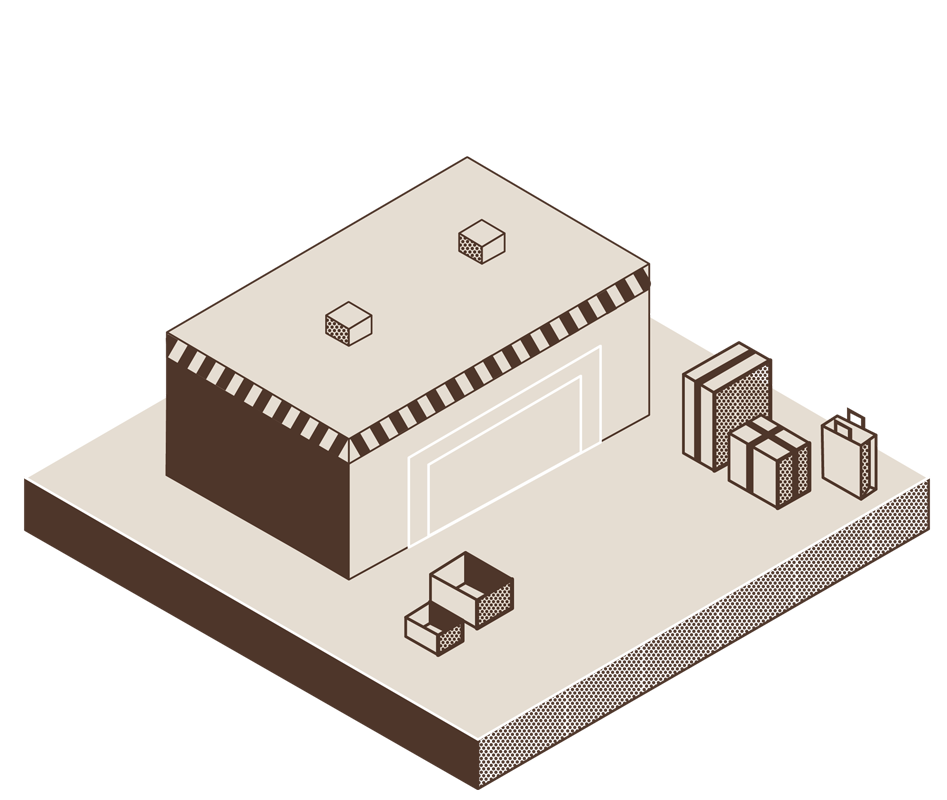 4
4End-Customers
Businesses and consumers rely on containerboard and corrugated cardboard for packaging, product protection, and retail promotions. These solutions play a crucial role in FMCG, industrial, and food packaging, with new applications constantly emerging across a wide range of industries.
-
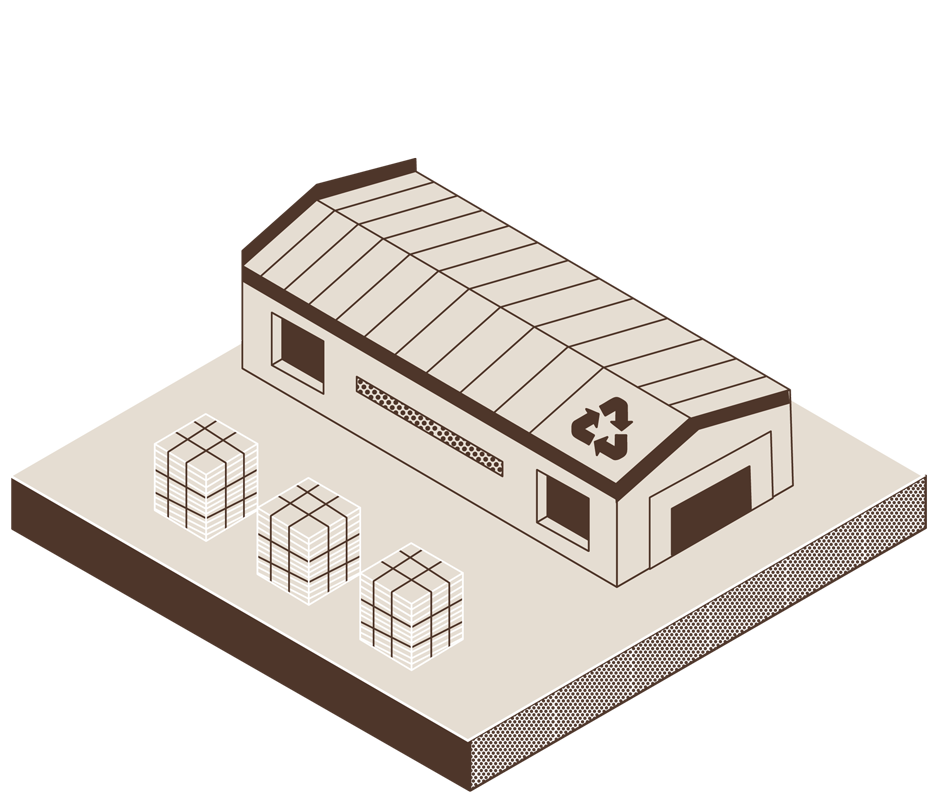 5
5Paper Recycling Facilities
Recycling facilities collect, sort, and process used paper and cardboard, transforming them into high-quality recycled fibres. These fibres are then supplied back to containerboard mills, keeping the circular loop operating efficiently.
1 Fibers
Both virgin and recycled fibers play complementary and equally essential roles in the containerboard production process. Their balanced use is key to maintaining circularity while ensuring superior product performance, delivering strength, durability, printability, and recyclability.
We’re on a journey to Net Zero
Learn moreWe’re on a journey to Net Zero
Learn moreEssential for economy, society and sustainability
Far more than a semi-finished paper product, containerboard is a crucial element of our Economy and Society, providing a sustainable, efficient, and essential product for various industries.
-
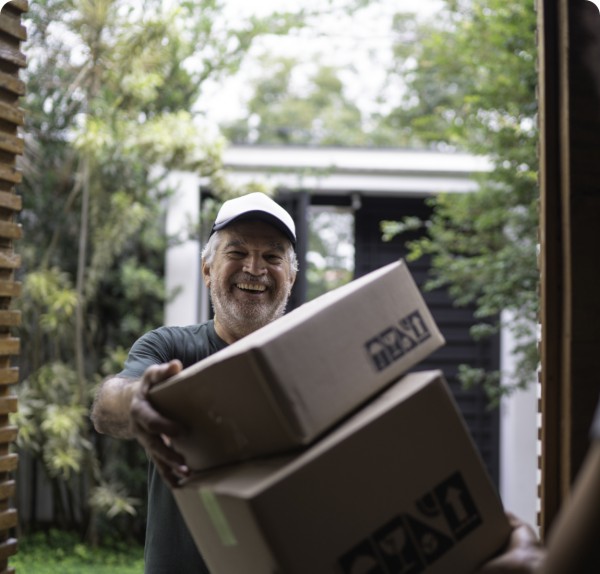
Rooted in local communities
Providing jobs and strengthening regional economies.
-
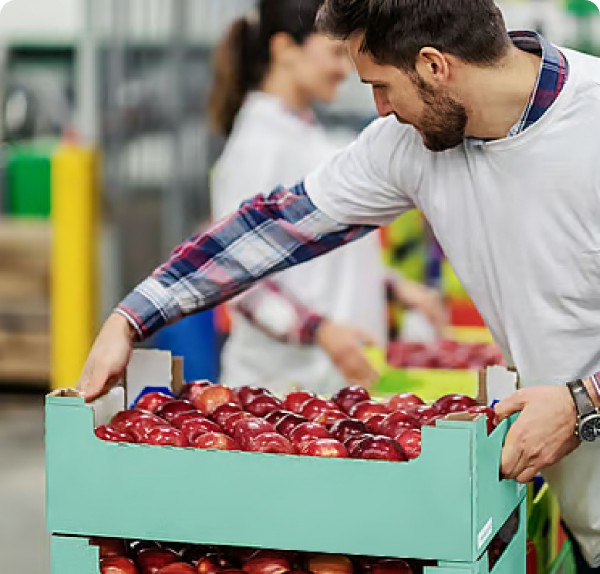
Supporting economic progress
A driver of trade, supply chains, and industrial growth.
-
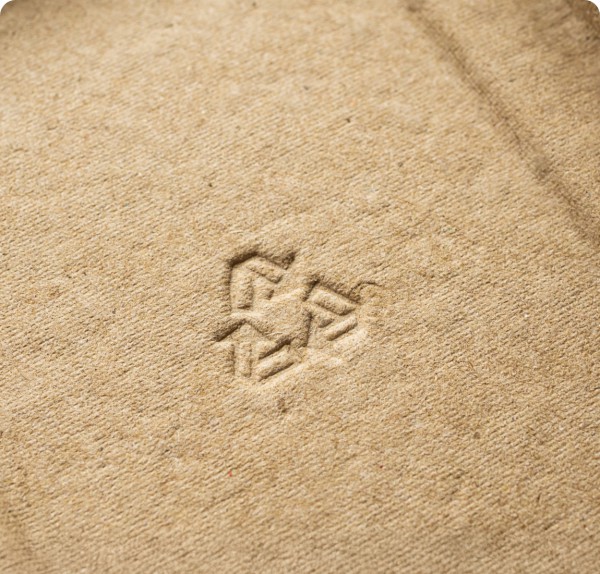
Sustainable at its core
We’re committed to a low-carbon, circular economy and to continuously improve our sustainability credentials.
About
Containerboard
Europe

Containerboard Europe is the industry association for containerboard producers, bringing together and representing the interests of more than 120 companies from 22 countries.
“Containerboard is a cornerstone of circularity, supporting sustainable trade and enabling Europe’s Green Transition.”
Paul van Bezouw, Managing Director
